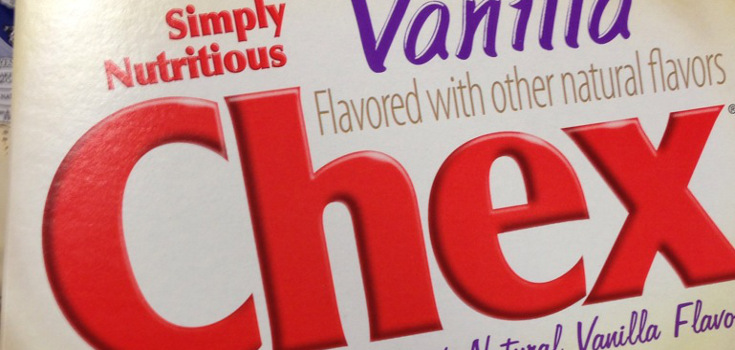So Many New Names for High Fructose Corn Syrup

Are you still trying to figure out if high fructose corn syrup is in the food you buy? Good luck. There are so many other names for high fructose corn syrup that you’ll probably spend 4 hours reading labels in the grocery store.
High Fructose Corn Syrup Names – An Unexhaustive List
I’m not going to waste any time. Here is an unexhaustive list of high fructose corn syrup alternative names.
glucose-fructose
glucose-fructose syrup
fructose corn syrup
fructose syrup
fructose
Isoglucose
HFCS
fructose isolate
glucose syrup
Fruit fructose
crystalline fructose
high-fructose corn syrup
natural corn syrup
maize syrup
glucose/fructose syrup
tapioca syrup
dahlia syrup
fruit sugar
Examples of the Food Industry Playing with the High Fructose Corn Syrup Label
In 2010 the Corn Refiners Association petitioned the FDA to allow it to call HFCS “corn sugar,” arguing that consumers have a bad impression of HFCS because of its complicated name.
Two years later, the FDA finally rejected the petition. So “corn sugar” didn’t seem to make it to the label.
Around 2014, the product General Mills’ Vanilla Chex saw an updated version of the Chex cereal sold in most conventional grocery and discount stores for many years. The front of the box clearly stated that the product contained “no high fructose corn syrup” (HFCS), but on the other side of the label – the new isolated fructose appeared.
The term ‘fructose’ started to be used in place of HFCS-90, meaning it is 90 percent pure fructose. Compare this to what is termed ‘regular’ HFCS, which is 55% fructose and 45% glucose.
The Corn Refiners Association explained:
“A third product, HFCS-90, is sometimes used in natural and ‘light’ foods, where very little is needed to provide sweetness. Syrups with 90% fructose will not state high fructose corn syrup on the label [anymore], they will state ‘fructose’ or ‘fructose syrup’.”
Earlier in 2014, General Mills was prohibited from labeling its products that contain synthetic ingredients as ‘natural.’ The Fortune 500 company reached a settlement agreement with the Center for Science in the Public Interest (CSPI) that would prevent it from designating its 30 Nature Valley products, which include granola bars, crispy squares, and trail mix bars- as 100% natural.
High fructose corn syrup (HFCS) is a food ingredient that has become widely used as a cheaper replacement for natural sugar during the past 40 years.
That 40-year time span has also seen skyrocketing incidence of obesity, diabetes, and other metabolic diseases. While as yet it has not been established that HFCS is the direct culprit, the circumstantial evidence is hard to overlook.
Nailing Down Links Between HFCS and Bad Health Outcomes
This study investigated the effects of various sugar solutions on lab rats. It found that the isolated fructose solution, as opposed to other sugars tested, resulted in a doubling of circulating triglycerides.
Another study found that consumption of HFCS-55 negatively impacts hippocampal function, metabolic outcomes, and neuroinflammation when consumed in excess during the adolescent period of development.
Yet even more research found higher-than-expected amounts of isolated fructose in beverages they tested. Popular drinks made with HFCS contain 50% more isolated fructose than glucose. They concluded that beverages made with HFCS have a sugar profile very different than sucrose (table sugar), in which fructose and glucose are equivalent and balanced.
Additionally, this research team suggested that current dietary analyses may underestimate actual fructose consumption.
Researchers from Princeton also found a lack of similarities between HFCS and table sugar. In their study, they found that rats who consumed HFCS gained significantly more weight than those who consumed table sugar. This was with the same caloric intake. The levels of HFCS given to the rats were substantially lower than the amount present in soda pop.
“Some people have claimed that high-fructose corn syrup is no different than other sweeteners when it comes to weight gain and obesity, but our results make it clear that this just isn’t true, at least under the conditions of our tests,” said psychology professor Bart Hoebel.
Don’t Reward Bad Behavior
If you want to engage in a healthful diet and you don’t want to be fooled by Big Food, it is essential that you read the labels of the products you buy. If you see ingredients that compromise health or that you can’t pronounce or understand, walk away from all the products made by that company.

HFCS can damage your liver and pancreas the same as alcohol does, maybe even why pancreas cancer is on the rise and them dying from it at younger ages.
Don’t eat any processed food period… Too many chemicals and “natural flavors” Too much GMO sugar and not enough nutrition. The reason processed food is so cheap is because it is filled with empty calories and cheap fillers.
It’s not just “empty calories”, they count, are metabolized in the liver and converted straight to fat. So they are not “empty calories”. They are toxic calories that are not empty because it packs a deadly punch to the liver and increases fat storage in the body instead of being assimilated into the body and cells.
It also causes insulin resistance, Gout, Diabetes, obesity and a host of other medical issues.
You seem knowledgeable, so this comment is more for others than you. 🙂
If it lists more than five ingredients, try something else.
Eating High fructose corn syrup is NOT the same as eating fruit.
Never said that they were the same. Only said that fructose is in all most all fruits and honey